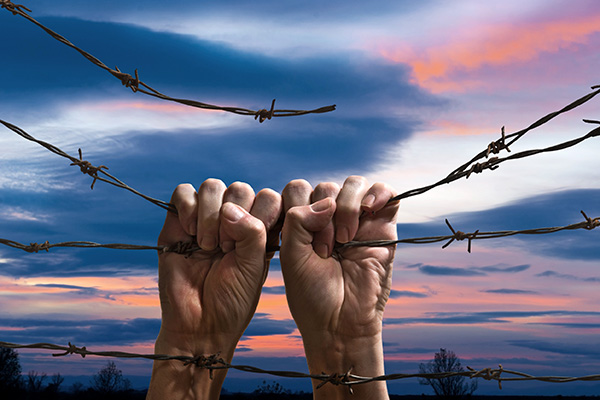forgiveness
The True Meaning Of Being Balanced
 Spiritual teachers often emphasize the importance of achieving and maintaining balance as a fundamental aspect of well-being, personal growth, and spiritual development.
Spiritual teachers often emphasize the importance of achieving and maintaining balance as a fundamental aspect of well-being, personal growth, and spiritual development.
But what does it really mean? Is it about having a healthy work-life balance? Is it about a balanced diet or exercise routine? No, these are just some of the smaller elements of achieving true balance.
Balance refers to being holistically balanced in all aspects of our existence: body, mind, and spirit. Achieving and maintaining balance means creating a harmonious and integrated life in which all aspects of our being support each other, leading to overall well-being and a deeper connection with our true self.
We are more than our physical health, appearance and fitness levels. We are more than our thoughts, ideas, and knowledge. And we are more than our spiritual beliefs and practices. We are a wondrous compilation of all these things that make up our body, mind, and spirit. When any part of us is unhealthy or dysfunctional, it disrupts our alignment with our higher self. This is the true meaning of being out of balance.
Striving to be true to your higher self should always be your priority. Your higher self is the real you, the you that exists in harmony with the universe and is an expression of the divine. It is only when we are in alignment with our higher self that the world truly opens up for so much more to flow into our lives…instead of out of them.
Free Yourself From Karmic Debt
 One of the most important things we must do before we leave this life and embrace the next is to ensure that our karmic debts are completely resolved. By doing so, we leave this world unburdened and ready to embrace our next existence with complete bliss.
One of the most important things we must do before we leave this life and embrace the next is to ensure that our karmic debts are completely resolved. By doing so, we leave this world unburdened and ready to embrace our next existence with complete bliss.
Now, if the consequences you may suffer in the afterlife are not of much concern to you, and you feel that karma is not really your problem, you may want to reconsider.
Carrying the heavy burden of karmic debt can also cause considerable misery and struggle in our present daily lives, manifesting as recurring negative patterns and obstacles that hinder our progress and well-being.
Our unresolved karma often leads to dysfunctional relationships, financial difficulties, health problems, and emotional turmoil as past harmful actions generate corresponding negative consequences. An ongoing state of karmic debt fosters feelings of frustration, helplessness, and despair, making it difficult to achieve happiness, joy, fulfillment, and peace.
By carrying the weight of unresolved karmic debt, you may find yourself trapped in a cycle of suffering, unable to break free and achieve the positive, fulfilling life you desire.
Karmic debt is a concept rooted in the spiritual principle of karma, which is a fundamental belief in many Eastern philosophies and religions, especially Hinduism and Buddhism. Karma refers to the universal law of cause and effect, whereby every action has a corresponding reaction. Our poor choices and negative actions create a spiritual debt. By acknowledging this debt and resolving our past mistakes, we achieve a state of inner peace, higher consciousness, spiritual growth and enlightenment.
Breaking The Pattern Of Relationship Trauma
 Today I did two consecutive readings for clients who are obsessed with a relationship from a long time ago. They both wondered why the relationship ended and what could have been if things had gone differently.
Today I did two consecutive readings for clients who are obsessed with a relationship from a long time ago. They both wondered why the relationship ended and what could have been if things had gone differently.
In retrospect, there have been many similar calls recently. I have even had clients who have had vivid dreams and nightmares about a particular ex-love, lost friend or estranged family member.
In all cases, I find that Spirit consistently offers the same guidance. These haunted thoughts and obsessions are due to a lack of closure and unresolved trauma. Spirit has also indicated that there is a growing epidemic of loneliness in the world. Because of this, more and more people are dwelling on old relationships and their regrets.
This has even happened to me recently, with people from my past that I have not thought of or seen in years coming to mind more and more. It can be surprising and disconcerting to have such random memories pop up. Spirit gave me exactly the same wake-up call. These memories are a sign that there is a need for forgiveness and healing. It is essentially a form of delayed grief, when instead we should be having happy and fond memories of the people in our past.
I find it helps to remember that they, like me, were just doing the best they could with what they knew and had at the time. When someone has shown signs of unkindness or aggression, I have also come to realize that it was the result of their own hurts, losses, or disappointments.
Maybe It’s Time To Let Go Of The Baggage
 Most people who make New Year’s resolutions don’t keep them. Every year we tell ourselves it’s time to move on, to change, to leave negative people and influences in the past, and yet we rarely follow through. We wonder if it is even possible to let go of the things that hold us back?
Most people who make New Year’s resolutions don’t keep them. Every year we tell ourselves it’s time to move on, to change, to leave negative people and influences in the past, and yet we rarely follow through. We wonder if it is even possible to let go of the things that hold us back?
Yes, it certainly is!
The first step is to simply make the decision that it’s time to let go of all the old baggage in your life. To do this we must be completely honest about what’s really holding us back and why it’s so difficult to let go. This is sometimes best done with the help of a coach or mentor, such as a therapist, spiritual advisor or trusted friend, who will listen and guide you objectively.
Until we have a true understanding of all our baggage and our own part in it, it will never go away. We must also be gentle and accepting as we travel this path. The past can never be undone, but it can be learned from and it can help us move into a better future.
I’m sure you’ve heard the saying, “Insanity is doing the same thing over and over again and expecting different results each time.” It’s within our power to change negative thinking patterns and habits. Good habits take at least a month to wire into our brains. Start with affirmations, practice better self-care, and stop obsessing about things you can’t change or control. Over time, you’ll find yourself making better decisions that aren’t tainted by the past.


